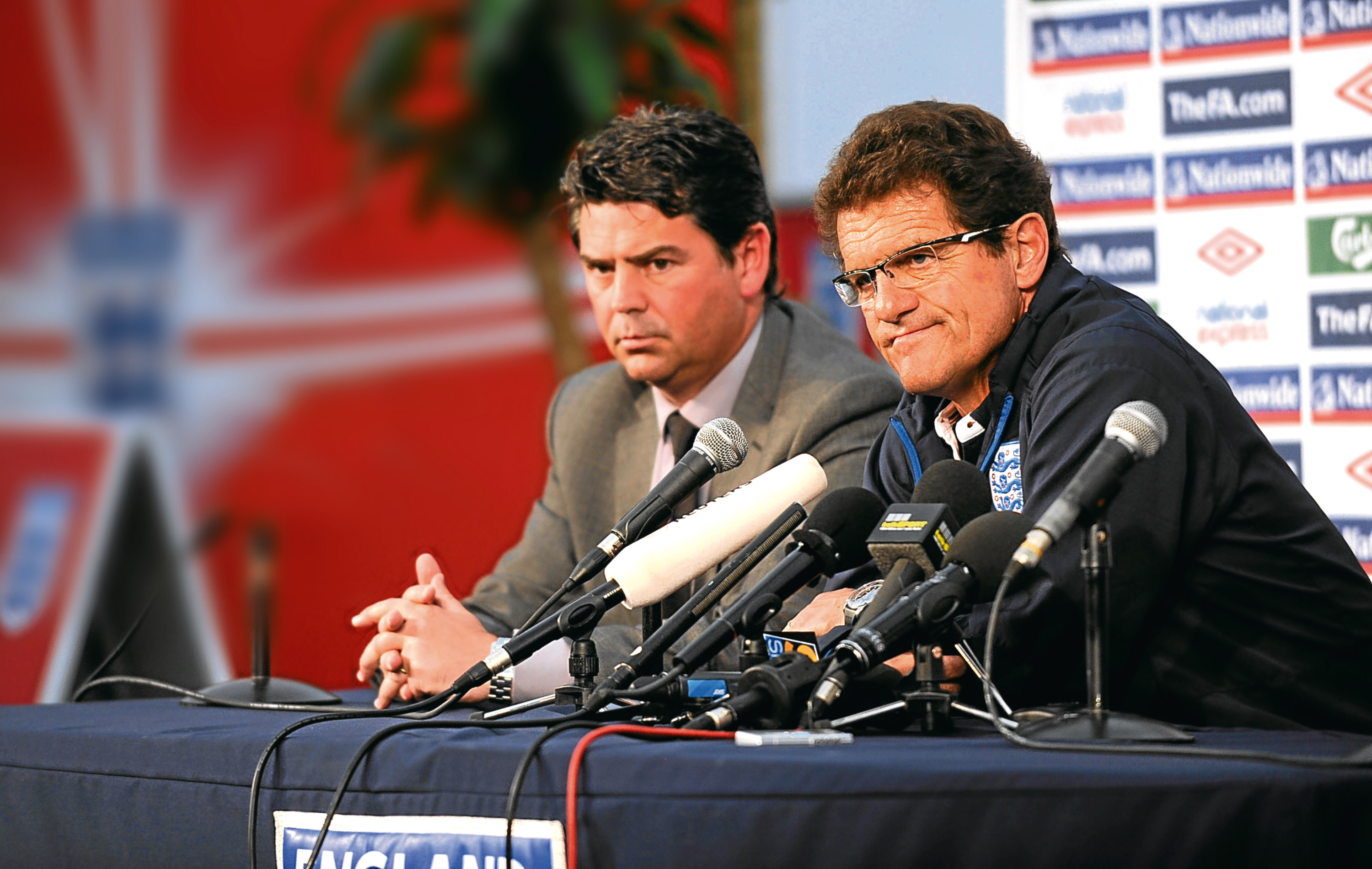
FARCE and embarrassment are just two of the words that have been used over the past few days to describe the SFA’s failed attempts to get Michael O’Neill to become the new Scotland manager.
Some agree with that assessment. Some strongly disagree.
The facts are that the Hampden hierarchy identified the Northern Ireland gaffer as their No. 1 target, and SFA chief executive Stewart Regan was put in charge of trying to land him.
Regan negotiated with his opposite number at the Irish FA to get the compensation package down below the anticipated figure of £500,000.
Privately, O’Neill gave out signals that he was extremely keen on the job. He was then offered the most-lucrative contract in the history of the SFA to take on the manager’s position.
However, armed with more than £11m of income from their Euro 2016 success – engineered by O’Neill – the Irishman’s employers were able to gazump the Scots by offering their man a six-year deal worth a total in excess of £4m.
O’Neill then felt he couldn’t be seen to turn his back on his country, and loyalty – more than the pay cheque – won the day for him to stay put.
Cue the barrage of criticism trained towards the SFA.
Adrian Bevington is a man who knows exactly what Regan, and his colleagues, have been going through in the past 10 weeks as they have tried to find a replacement for former boss Gordon Strachan.
He was the managing director of Club England, and one of the English FA’s chief power brokers for more than a decade, before he decided to step down four years ago.
He was involved in the process to appoint the likes of Fabio Capello and Roy Hodgson as England managers.
Since leaving Wembley, Bevington has been involved in consultancy work for high-profile managerial and executive appointments at several English and European football clubs, as well as national associations.
He is highly-regarded in footballing circles, and knows all of the ins and outs, pros, cons and pitfalls of trying to negotiate a deal that will secure your No. 1 target for any position, including that of national manager.
He has sympathy for the SFA’s current predicament and told The Sunday Post: “It is very easy for people on the outside to make judgments and accusations.
“But trying to appoint a manager is never an easy process.
“You need to sit down with the board or executive committee and decide the way forward.
“Do you identify one target and go for that person, or do you have a shortlist and interview three or four candidates?
“Some will want it done one way, others will prefer an alternative route. So that all takes time to come together.
“When I was at the FA and we decided to go for Fabio Capello, he was our only target.
“It took a period of negotiation – but we got there.
“It was the same when we identified Roy Hodgson as the man to lead England. He was the only we person we pursued, and that made the appointments of Fabio and Roy smooth processes.
“You try to land your preferred target in the quickest and cleanest way possible.
“Sometimes you don’t feel the need for a Plan B or a Plan C.
“However, had either Capello or Hodgson said ‘No’, we were back to the drawing board.
“So Scotland were in the same situation with Michael O’Neill. You can totally understand why they made him their No.1 target.
“He had done a magnificent job with Northern Ireland, and it made total sense to go for Michael.
“Unfortunately for the SFA, Michael has stayed with Northern Ireland. But it could have very easily gone the other way and the whole process would have been hailed as a success.
“It’s such a fine line, it really is.
“When we appointed Gareth Southgate as England Under-21 manager, we had seven or eight candiates and we spoke to them all.
“When Steve McClaren came in as England manager, we went through an interview process with a few candidates.
“In that regard, it became a bit messy because it all became very public. So that’s why I can see the merit in identifying the one person.
“It all just goes to show that a recruitment process is not easy. That’s why I have sympathy for the SFA.
“They are under scrutiny, and the past week or so will have been very, very frustrating for them.
“It is a very intense environment, and the SFA are under a microscopic lens in a way that many other organisations aren’t.
“There is so much passion for football in Scotland, and for the national team to get it right because there has been no qualification for a major tournament in 20 years.”
When the SFA appointed Strachan – and before him, Craig Levein – they were the only targets. It was the same story with Walter Smith and Alex McLeish.
Indeed, of the last five Scotland manager appointments, the only time an interview process of a shortlist took place was a decade ago, when George Burley, Graeme Souness and Joe Jordan were invited to Hampden.
In the end, Burley was given the nod.
So it’s nothing new for the SFA to go down the path they chose with O’Neill. It’s just unfortunate that this one wasn’t successful.
The country now awaits Plan B. This time, it could well be that the SFA decides to draw up a shortlist.
Davie Moyes and Paul Lambert are now out of the running, after being recently enticed back to work in the English Premier League.
Plenty of names have been mentioned, from Alex McLeish to Neil Lennon, Malky Mackay to Gary Caldwell, Steve Clarke to John Collins, Gary McAllister to Harry Redknapp.
It’s likely the new man will be in place for the friendlies in March against Costa Rica and Hungary.
Bevington continued: “One thing for sure is that the Scotland job is a very attractive proposition for many, many reasons.
“Since I left the FA, I’ve been involved in managerial appointments for clubs and national associations, so I know what is out there.
“The task of finding a new manager is now an absolute priority for the SFA. I wish them every success as they try to bring in Gordon Strachan’s successor.
“I would genuinely love to see Scotland back involved in a major tournament, and with Hampden Park hosting games at Euro 2020, you can fully understand why there is such a determination to be a part of it all.
”There is the prestige for the players and management and the wonderful occasion it delivers for the supporter.
“There is also a significant financial element for qualifying and that can’t be overlooked, either.”
It could well be that a whole new dynamic is in place for when Scotland go to find their next manager after this appointment is made. The days of identifying a single target could disappear.
There isn’t legislation yet, but more and more organisations in football are being urged to adopt the Rooney Rule and interview people from a BAME (British, Black, Asian and Minority Ethnic) background.
The FA will go down that road when it’s time to replace Gareth Southgate as England manager.
Bevington said: “There is more and more public debate surrounding the Rooney Rule, and that could see a change.
“It would mean the days of going after a single target will be gone.”
The Rooney Rule is named after Dan Rooney, the former owner of the Pittsburgh Steelers, which requires NFL teams to interview minority candidates for head coaching and senior operational jobs.
That’s in the future. Right now, Stewart Regan has more than enough on his plate.

Enjoy the convenience of having The Sunday Post delivered as a digital ePaper straight to your smartphone, tablet or computer.
Subscribe for only £5.49 a month and enjoy all the benefits of the printed paper as a digital replica.
Subscribe